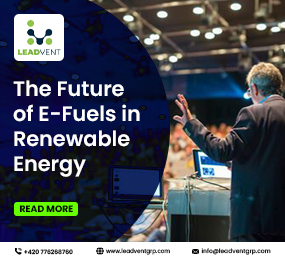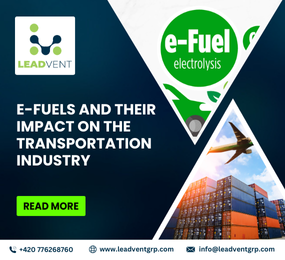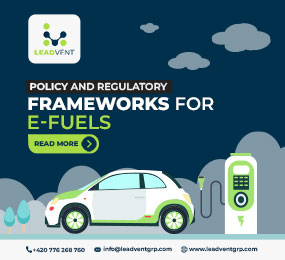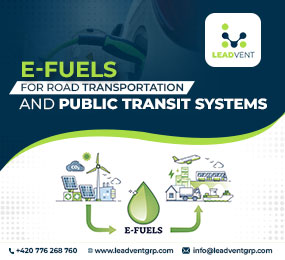In this present era pervaded by a growing degree of environmental consciousness, car owners are getting inclined towards e-fuel. The preponderance of e-fuel at the current time enunciates the gradual endeavours of individuals to eliminate greenhouse gas consumption.
In reality, e-fuel is a promising solution that helps the transportation sector get rid of the burden of greenhouse gas emissions on a daily basis. However, the scaling of e-fuel is packed with numerous challenges that take work to navigate.
This blog is going to delve deep into pointing out the challenges associated with the scaling of e-fuel and their proven solutions. Let's begin.
Overview of e-fuel
E-fuel stands for synthetic fuels that are produced directly from renewable energy resources such as solar and wind. Instead of deriving from the traditional fossil fuel and petroleum refining processes, e-fuels are synthesised from chemical components like nitrogen, carbon dioxide, and hydrogen. E-fuel combines everything from reducing greenhouse gas consumption to increasing energy security, e-fuel combines it.
Challenges in scaling e-fuel production
The growing demand for e-fuel in the present scenario is compelling e-fuel producers to resort to scaling up e-fuel production. However, the scaling of e-fuel production is associated with a complex set of challenges that can be hardly avoided.
As the scaling of e-fuels is associated with a plethora of challenges, they may even have a detrimental impact on organisational decisions. Let’s take a look at the below pointers to point out the stumbling blocks and find out the potential resolutions to them.
Challenge 1: E-fuel production is an energy-intensive process
One of the most crucial challenges associated with the scaling of e-fuel production is the higher demand for energy resources. This bulk amount of energy, in reality, seamlessly supports each stage of production.
Ranging from the production of hydrogen to the capture of carbon particles and the final synthesis process, all consume a high amount of energy. As e-fuel is one of the most promising solutions, this challenging process of scaling production is in dire need of ceaseless brainstorming to come up with progressive solutions. At the upcoming World E-Fuels Summit 2024, an intensive knowledge-shaping process is going to seize the spotlight by highlighting the striking details of alternative fuels.
Challenge 2: Extremely expensive process
The second next challenge is the potential usage of synthetic fuels in aviation and shipping, which is giving rise to a load of expenses in these two sectors. As the producers have opined, there are few cost drivers that account for the high expenses.
These cost drivers are the amount of renewable energy used, transportation, location, and process of capturing carbon particles.
Challenge 3: Production suffers due to the technological challenges
E-fuel, unlike that of its traditional counterparts, is lagging behind in the context of production. And it is all due to the scarcity of clean energy technologies that can accelerate the process of synthesis. In reality, all the technologies are presently in the piloting phase, and this is one of the major obstacles.
- Challenge 4: Inability of the e-fuel to completely eliminate pollution emissions
Despite the process of synthesis, there are still pollution issues for the e-fuels. Although, through combustion, the sulphur dioxide and other particles are eliminated, the remnants of ammonia still exist.
Solutions for dealing with the challenges of e-fuel scaling production
When the arena of e-fuel production is surrounded by complex challenges, it is quite difficult to come up with the proper resolutions. In the current situation, only thorough research and development and strategic investment in the technologies can depict a beacon of hope.
Exclusive and thought-provoking endeavours like the World E-Fuels Summit 2024 can show a systematic direction. As here at this summit, both the industry leaders and the stakeholders will conduct an insightful discussion on a myriad of topics. Ranging from the development of a cost-efficient e-fuel strategy to innovations in e-fuel technology, all of them are going to be encompassed in detail.
Case Studies
EU’s Initiative
In the year 2022, the US Inflation Reduction Act was signed with the noble purpose of stimulating significant investment. The reason behind it was quite clear, i.e., to eliminate the hassle of managing the huge cost of e-fuel production. This IRA in reality encouraged the EU to embrace ‘net-zero policy’, but it also met some prominent challenges,
- Substantial loss of revenue for the producers
- Regulatory risk factors
Statistics
As per the statistical details, the value of the e-fuel market in 2023 was around 125.10 billion in the year 2023. In Europe, e-fuel has achieved momentum in 2023, with a 47% increase in revenue growth. It is expected that with innovative breakthroughs, the global e-fuel market can reach the apex of revenue and continue to outpace its traditional counterparts.
FAQs
1) What are the primary obstacles to scaling up e-fuel production?
A higher degree of energy consumption during carbon capture and conversion is one of the primary obstacles associated with the scaling of e-fuel production.
- 2) What are the key factors driving market demand for e-fuels?
Strict environmental regulations and the growing consciousness of the public are adding to the demand for e-fuel.
Bottom Line
E-fuel is the future of the automotive, maritime, and aviation industries. With the assistance of progressive endeavours like the E-Fuels Summit 2024, To get more insights about the E-Fuels Summit 2024, register for this event and connect with Leadvent Group today via the official site!












